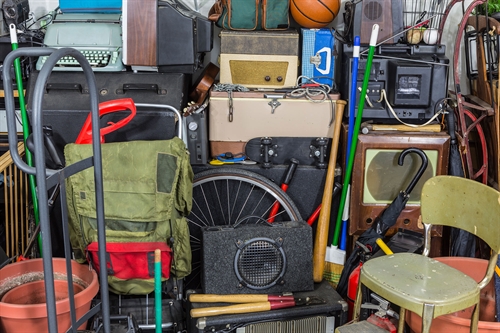Giving away your unwanted goods is very satisfying, particularly if it benefits a charity. But some items are difficult to sell so charity shops prefer not to take them. Like shops run for-profit, charity shops pay to have rubbish removed, so when you give a dud donation you are actually taking money away from a charitable organisation.
Ask first – and do as they say!
Our first tip is to ask before donating. Some charities have a website with a list of ‘yes please’ and ‘no thank you’ items. With others, you’ll have to go into the shop and ask. Their wants and don’t-wants might change from time to time as stock levels and seasons change, so don’t assume that because they took electricals or furniture last month, they’ll take them this month.
Damp or mouldy? It won’t sell
Charity shops cannot sell damp or mouldy or pest-infested items. They will have to pay to dispose of them. Even having such contaminated items on the premises can leave the charity shop needing to treat other items in their stock.
Ripped, stained or torn clothes
Charity shops will not usually sell torn or stained clothes to customers – but they can bundle them up for the ragman. You should ask before giving, though, and it’s helpful to sort your rags into a separate bag.
Electrical goods
Electrical goods fall into the ‘ask before donating to charity’ category. Some organisations are well set-up to take these and can test and sell them or take them apart for recycling (and profit). They will be grateful for electrical goods. Other charity shops ask that you do not give them electrical goods.
Soft furnishings with no fire safety labels
Most charities cannot take soft furnishing that do not have their fire safety label sewn or stapled on. This is so the charity can meet its obligations under The Furniture and Furnishings (Fire) (Safety) Regulations 1988. The fire safety labels show that the different parts of the furniture meets specified ignition levels.
Safety equipment
Charity shops cannot sell children’s car-seats or bike helmets. They will have to pay to dispose of them. The same goes for used crash helmets, climbing harnesses and the like. If your safety item is unused in original packaging, it may be more welcome, but ask first.
Store your unused goods carefully
Your donation will be more welcome if you take good care of your household items. This means storing things in the right way, and passing them on as soon as you realise you don’t need them. Self-storage can help with this. Rather than cramming possessions into spaces that are too small, or are damp or prone to temperature fluctuations, use a storage unit.
How much is it to rent a storage unit?
The price of storage units varies across the country and it is not easy to say how much it costs to rent a storage unit. We have a post that will help you estimate the cost of storage, though. You will pay more for high security, climate control and 24-hour access. But self-storage units can be inexpensive, and you can keep costs down by decluttering regularly. Insurance is a condition of your contract with most storage companies, but you don’t have to take the policy they offer you. You can reduce your costs by shopping around for self-storage insurance. Start by getting a quote from Store and Insure.


